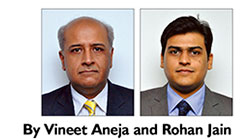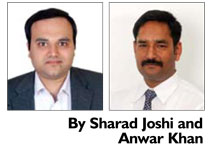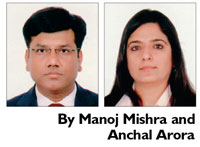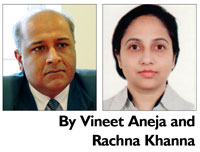 The Controller of Patents (India) recently revoked the patent granted for the anti-retroviral drug ‘Valganciclovir’ used for treating active cytomegalovirus retinitis infection (CMV) which, if untreated, leads to blindness in people with HIV. The said patent was granted by the patent office vide Indian Patent No. 207232 to Hoffman-La-Roche for Valganciclovir against the mail-box Application No. 959/MAS/1995 filed on July 27, 1995 under Section 5(2) of the Patents Act, 1970 [hereinafter referred to as the ‘1970 Act’]. The patent was revoked by the controller vide the above mentioned order primarily on the following grounds:
The controller also held that NGOs may be deemed ‘persons interested’ and thus have the locus standi to file post-grant opposition as they are the end users or persons are directly and severely affected, if the patent is granted. The Valganciclovir patent has been entangled in several controversies, judicial and quasi-judicial (if the pre-grant and post-grant oppositions may be described so), proceedings for almost half a decade now. The Valganciclovir patent had been initially granted without hearing pre-grant opposition filed by Indian Network for Positive People (INP+) and Tamil Nadu Network of Positive People (TNNP+). At this stage, INP+ and TNNP+ had moved the Madras High Court which set aside the grant of patent directing the assistant controller to hear the pre-grant oppositions before concluding in grant or rejection of the patent. The assistant controller after hearing the oppositions proceeded to grant the patent Subsequently, INP and TNNP also moved the Apex Court which allowed these organisations to participate in the post-grant opposition proceedings through intervention cum affidavit alongside the already-on-record post-grant opponents, namely Delhi Network of Positive People (DNP+), CIPLA, Matrix, Ranbaxy and Bakul Pharma. The controller, after having considered the post-grant oppositions, revoked the patent whereafter Hoffman-La Roche approached the Intellectual Property Appellate Board (IPAB) in appeal. The IPAB on certain technical grounds set aside the revocation and remanded the matter back to the controller for looking into the revocation afresh. The controller thereafter reconsidered the post-grant oppositions and ultimately revoked the Valganciclovir patent vide the order dated July 1, 2015, primarily on the grounds stated above. The grant of the said patent was particularly significant as the application claimed its earliest priority dated July 28, 1994, therefore making Valganciclovir the first prior-to-1995 pharmaceutical product to be patented in India while the general assumption has been that only drug molecules post 1995 are eligible for patent protection in India since India became a party to TRIPS in 1995. Having said that, the revocation of the Valganciclovir patent is a landmark decision and a significant relief for patients as it has now opened the gates for cheaper generic versions of the same, thus making the treatment more affordable. The instant decision is also noteworthy in light of the fact that it was for the first time in this matter that the scope of ‘persons interested’ under Section 2(1) of the 1970 Act who can file post grant oppositions was expanded to include NGOs by the Indian Patent Office when it first revoked the patent in 2010. The above mentioned widening of the definition of ‘persons interested’ has also been discussed briefly and reaffirmed by the Controller of Patents, Chennai in the latest Order dated |
Clasis Law
14th Floor, Dr Gopal Das Bhawan,
28, Barakhamba Road, New Delhi 110 001, India
Tel: (91) 11 4213 0000 / Fax: (91) 11 4213 0099
Email: rahul.beruar@clasislaw.com
sarita.rout@clasislaw.com
www.clasislaw.com
































